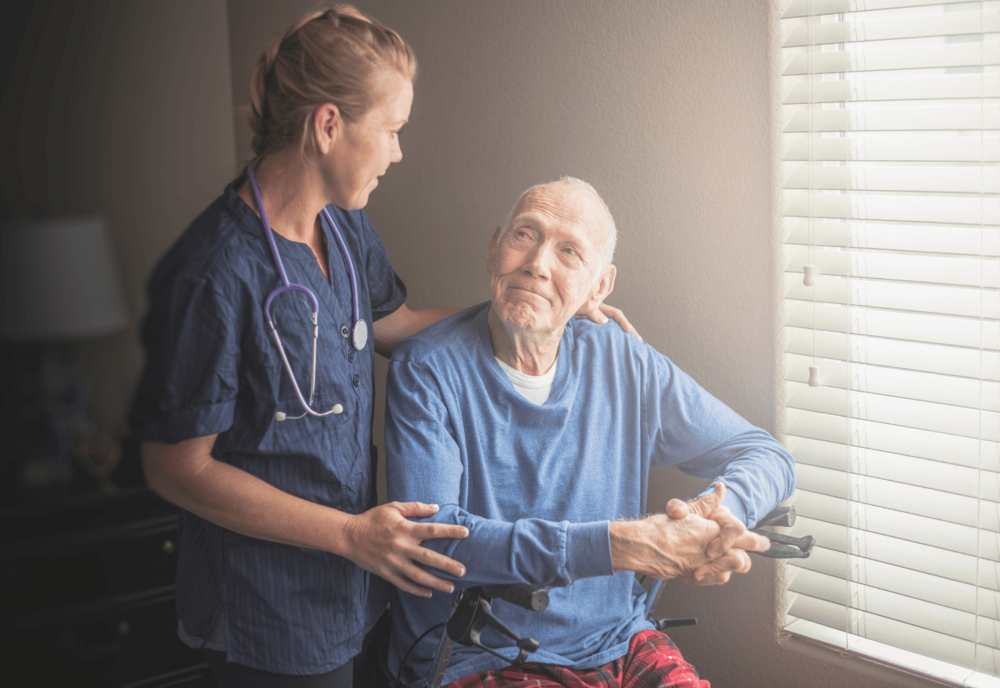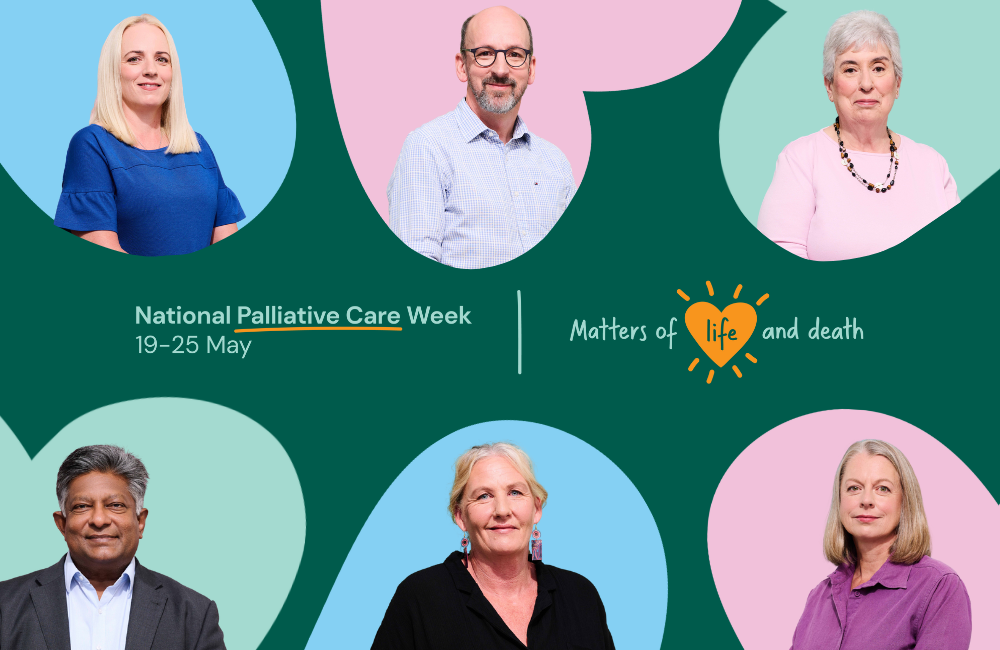We're all going to die - so how do you want to live?
Lily Plass
18 May 2024, 7:40 AM

Palliative Care Week starts tomorrow and its here to show how planning for death can make life more enjoyable.
Dr. Louis Christie is a palliative care specialist working in Western NSW.
"Palliative care is about the care of people who have an illness that we know we can't cure," he said. "It is a philosophy of care around the provision of good symptom control and helping maintain people as well as we can."
"And to be able to do that in a place of their choosing, ideally, in a way that is authentic to them. So they're able to have important people around them and to be supported by the people in their lives that they value as they're going through that dying process."
"The process of dying is something we tend not to plan for. If you plan for something, it'll go better than if you don't."
"The focus of our end-of-life and palliative care services is to improve the quality of life for patients facing a life-limiting illness by addressing physical, psychological, social, or spiritual challenges or symptoms, who also providing support for families and carers," Western NSW Local Health District Manager for Palliative Care Services, Christine Symington said.
Palliative care has only been around relatively recently as its own discipline in Australia, according to Dr. Christie. "It's been around 30 years as a separate medical discipline."
"Any doctor, nurse, or allied healthcare professional who's involved in caring for people should be able to provide care for symptoms and distress," Dr. Christie said.
However, in some cases specialised care is necessary.

"For some people, the management of symptoms becomes very complex. And so the regular procedures we do to keep people comfortable, don't necessarily work. In those settings, you need to engage a specialist palliative care service."
"A lot of the development of palliative care services focused initially on urban areas, large hospitals, and large communities. There wasn't initially as much focus on how we do palliative care in rural communities. Generally speaking, if you look at workforce data, per capita, there is more access to specialist palliative care services in urban areas than there are in rural areas."
Another challenge for palliative care patients in rural areas is planning face-to-face appointments with their doctor.
"If we're talking about people being able to receive care as close to home as possible that means palliative care has to come to the person, the person can't go the palliative care."
Despite an increase in teleconferences since the COVID pandemic, Dr. Christie said some patients require in-person care which means a lot of travelling for staff.
Dr. Christie also said that providing palliative care in rural areas can often hit close to home.
"If you're living in a town, say of 10,000 people then chances are the social connections are such that the people you end up looking after are people you have some connection with socially. There's that extra challenge of managing that complex human relationship at a very distressing time for people."
Despite the complexities of providing palliative care in rural areas, the discipline is continuously developing and improving.
"The Western NSW Local Health District ( WNSWLHD) recently completed refurbishments of palliative care spaces at health services in Wellington, Canowindra, Trundle, and Brewarrina," Ms. Symington said.
The Orange Health Service's palliative care space is currently also in development as part of the World Class End of Life program from the NSW government.
During palliative care week, teams in Bathurst, Orange, Dubbo, Parkes, Forbes, and Mudgee will be doing activities for palliative care week, including palliative care and death literacy.
This gives people an opportunity to talk about healthcare to understand what it is and to think about what the service may be able to offer.
"National Palliative Care Week is a wonderful opportunity to increase awareness about the importance and benefits of accessing end-of-life and palliative care services and to begin conversations with our family and friends about how we may like to plan for our future, including our own end-of-life care," Ms. Symington said.
Providing palliative care can help make a painful situation manageable for the patient and their loved ones.
"Generally speaking, the reactions of people, we look after are very positive. Obviously, we're coming into people's lives at a very profound and challenging time in their life. We can't necessarily make everything better. But we can make sure it's not overwhelming for them," Dr. Christie said.
To find out more about National Palliative Care Week click here




